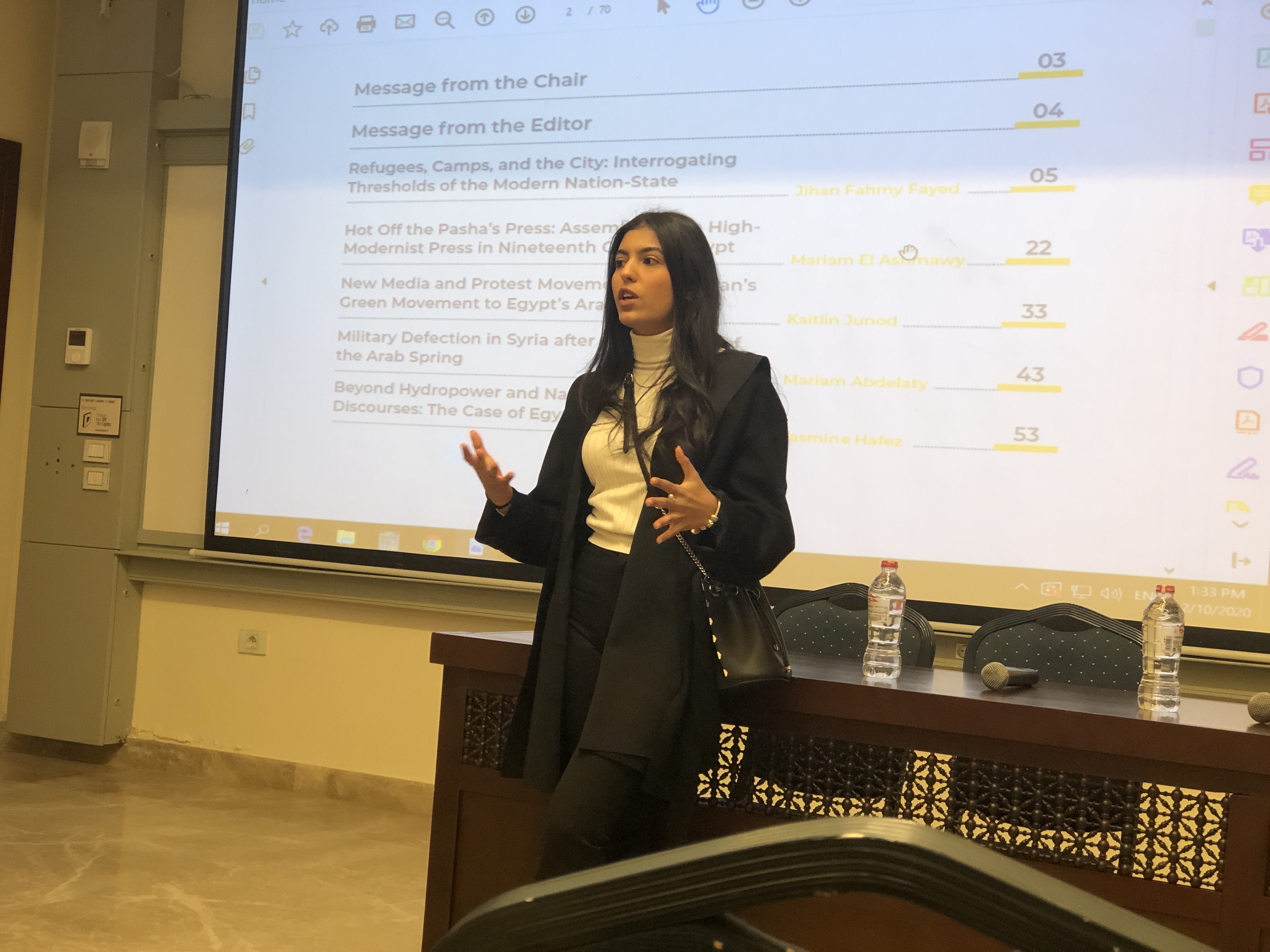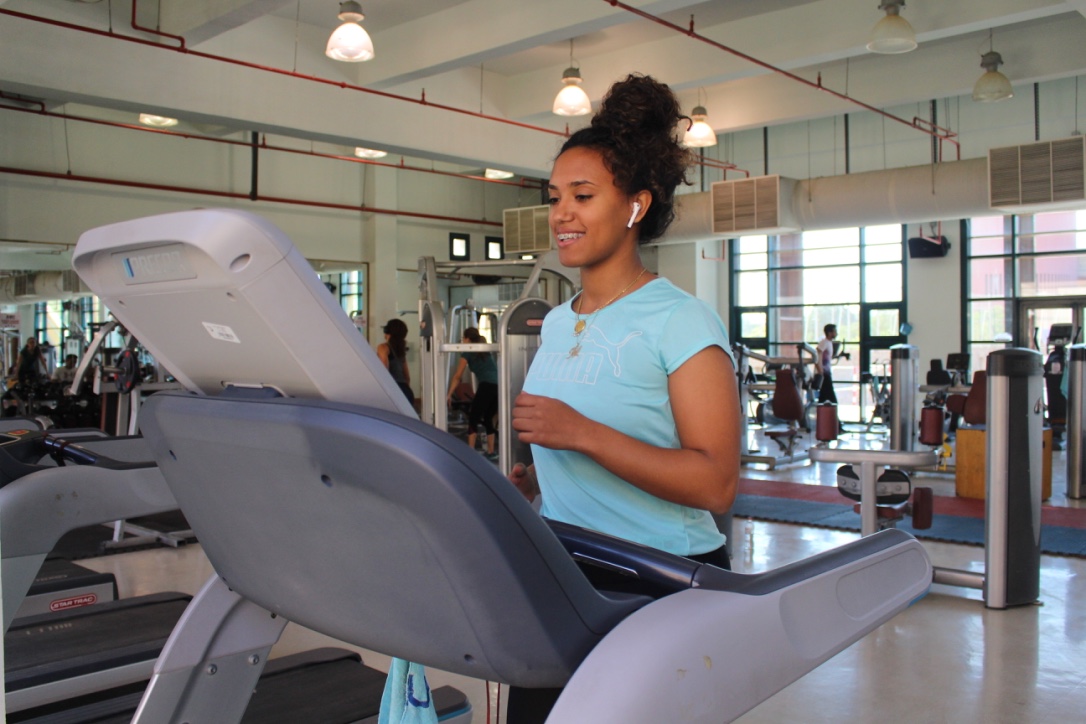Women Dominate Discourse with Khamasin
By: Dalia Abdelwahab
@Lia_A0617
The Department of Political Science recently celebrated the relaunch of Khamasin, a biannual publication which highlights issues of change and momentum in the region.
The name is a reference to the dry, hot wind that affects North Africa on a yearly basis.
“Khamasin is a very regional kind of wind, so, it represents two things that this publication stands for; basically, coming out of AUC, which is part of the Arab world and focusing on change and the new generation and new voices,” Rabab El Mahdi, associate professor and chair of the Department of Political Science, said.
“I am extremely proud to announce that our first issue is an all-women issue,” El Mahdi added.
Works featured in the magazine were written by political science students and alumni, although El Mahdi stressed that students from all disciplines are welcome to submit relevant articles to the publication.
“It is diversified in terms of the historical pan it covers and the [geographic] area it covers,” El Mahdi added.
Among the topics tackled in the magazine’s five articles were the Arab Spring of 2011, the military defections in Syria and the refugee crisis.
Jihan Fayed, author of the piece Refugees, Camps and the City: Interrogating Thresholds of the Modern Nation-State, was inspired to write m her article while working on her honors thesis.
“I was trying to move away from the rigid definitions of what it means to be a citizen, or what it means to have an established city, through, for instance, saying that the camp can be an extension of the city,” Fayed said.
Her aim is to push political discourse related to refugees in the direction of accepting that mobility could ultimately be positive rather than negative.
She added that refugee camps could slowly establish themselves as parts of cities through integration and cultural activities.
Another article, Beyond Hydropower and Nationalism Discourses: The Case of Egypt and Ethiopia, discussed the issues behind building the Grand Ethiopian Renaissance Dam (GERD).
The piece is authored by Yasmine Hafez and features a discussion of both the historic and economic grievances GERD contributed to between Egypt and Ethiopia.
“I liked the idea that all the authors are women, so, it’s woman-based. I also liked the refugee article which discussed the conventional and unconventional ideas of citizenship and city-states,” Manal Ahmed, a political science graduate, told The Caravan.
Khamasin is available online for all audiences and readers.




